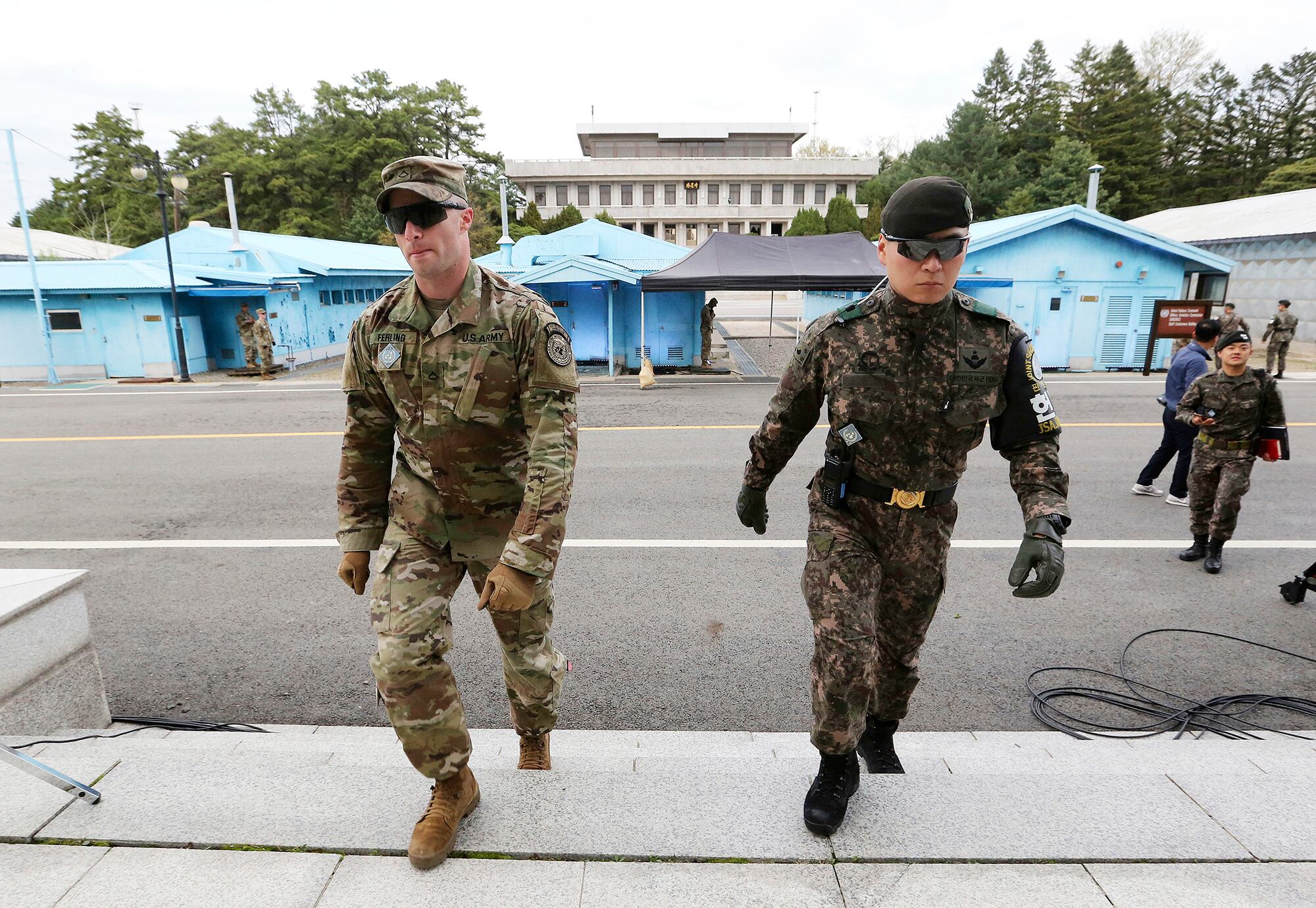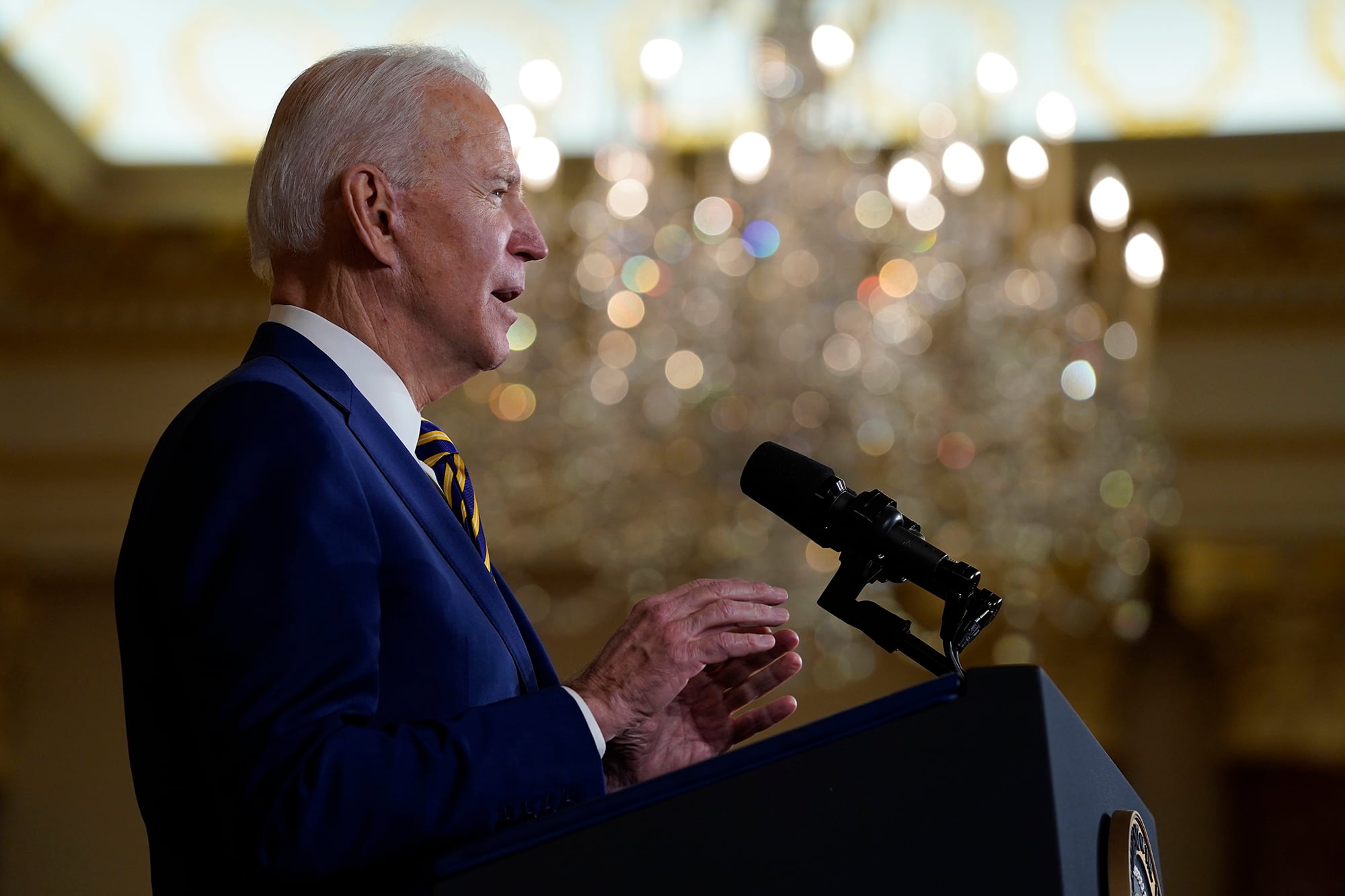WASHINGTON — A new agreement with South Korea on sharing the cost of keeping U.S. troops on the Korean Peninsula is early evidence that President Joe Biden is shifting America’s approach to alliances in Asia and beyond. It shows he will cut allies a break to build unity in competition against China and Russia.
President Donald Trump had demanded South Korea pay billions more to keep American troops on its soil. In his view, the United States was getting fleeced by what he suggested were freeloaders masquerading as allies. Initially, Trump insisted the South Korean government pay five times as much as it previously had. Seoul balked, diplomacy went nowhere, and relations with a treaty ally began to fray.
Biden, by contrast, settled for a 13.9 percent boost and follow-on increases that put the issue to rest.
RELATED

Biden’s view is that well-functioning alliances are central to competing with China, which his administration sees as America’s biggest long-term security challenge, along with Russia. Biden’s promise to focus more on Asia mirrors commitments by the two previous administrations — with both having their plans stymied by persistent turmoil in the Mideast. In a sign that Biden could faces similar obstacles, his first known military attack was against extremist targets in Syria.
In what the White House called a sign of Biden’s commitment to partnering in the Asia-Pacific region, on Friday he will meet virtually with the leaders of three other regional powerhouses — India, Australia and Japan. Biden also is sending Secretary of State Antony Blinken and Defense Secretary Lloyd Austin to Japan and South Korea next week for security consultations; on his way home Blinken will join Biden’s national security adviser, Jake Sullivan, for talks with Chinese officials in Alaska.
A few days before the election last November, candidate Biden foreshadowed his intentions toward Seoul in an opinion article he wrote for South Korea’s Yonhap news agency. He praised the South Koreans’ role in an alliance “forged in blood,” and he pointedly promised a new approach to Seoul if he were to win.
“Words matter — and a president’s words matter even more,” Biden wrote. “As president, I’ll stand with South Korea, strengthening our alliance to safeguard peace in East Asia and beyond, rather than extorting Seoul with reckless threats to remove our troops.” He promised “principled diplomacy.”
He might also have mentioned quick diplomacy. Last weekend, U.S. and South Korean negotiators reached an agreement that, if ratified by the South Korean national assembly, would end an impasse over Seoul’s share of the cost of keeping approximately 28,500 U.S. troops on the Korean Peninsula. The troops serve as a symbol of the U.S. commitment to a defense treaty born of the 1950-53 Korean War.
The new cost-sharing deal comes after a stopgap one-year arrangement by the Trump administration in March 2019 that required Seoul to pay about 1 trillion Korean won, the approximate equivalent of $910 million. Trump then demanded a five-fold increase starting in 2020. The South Korean government refused.
Biden took office in January with what he apparently viewed as a chance to end the acrimony, and the State Department team of negotiators quickly wrapped up a multiyear deal that requires a 13.9 percent increase in Seoul’s payments this year, followed by four years of increases tied to rises in its defense budget.
“This administration is trying to say alliances are important for us,” said Bruce Bennett, an Asia specialist at the RAND Corp., adding that this goes beyond South Korea to include other traditional Asian allies like Japan. Biden officials “know they’ve got a substantial issue trying to deal with the Chinese threat. So making their relationship closer with allies is a key part of the strategy for doing that.”
Japan and South Korea for decades have been linchpins of the U.S. defense strategy in the broader Asia-Pacific region, which the top U.S. commander there, Adm. Philip Davidson, has called “the most consequential region for America’s future.” Last month, the U.S. and Japan agreed to a one-year extension of their cost-sharing agreement for the U.S. troop presence; the State Department said this allowed more time to negotiate a longer deal.
Part of the backdrop to the speedy deal with Seoul is Biden’s focus on China’s military modernization, its ambitions to be a global power, and its potential to help contain North Korea’s nuclear weapons program.
“There is a widely held view in the Biden administration that the U.S. should deal with China from a position of strength, which requires strengthening our alliances as well as renewing our own country,” said Bonnie S. Glaser, director of the China Power Project at the Center for Strategic and International Studies.
RELATED

Trump was hardly the first president to push allies to pay more of the cost of hosting American forces. The difference was that Trump took an unbending — some would say insulting — approach to European and Asian allies that was at odds with his Pentagon chiefs, starting with Jim Mattis, who put a high value on alliance cooperation. This difference was a key reason Mattis resigned in December 2018.
In addition to trying to squeeze more money out of Seoul, Trump had questioned the need for U.S. military exercises with South Korea, calling them wasteful and an affront to North Korea.
Jonathan D. Pollack, an East Asia policy expert at the Brookings Institution, said it’s no surprise that Biden would move quickly to make a cost-sharing deal with Seoul and ease strains from the Trump administration.
“If the administration is serious, as I think they are, about trying to restore some modicum of normalcy to alliance relations, this is a very good way to do it,” Pollack said. He thinks this applies also in Europe, where U.S. relations with NATO allies were strained by Trump demands over sharing the burdens of defense.
“I do think it’s indicative of the way I expect Biden will proceed on other fronts as well with respect to alliance enhancement,” he said.





